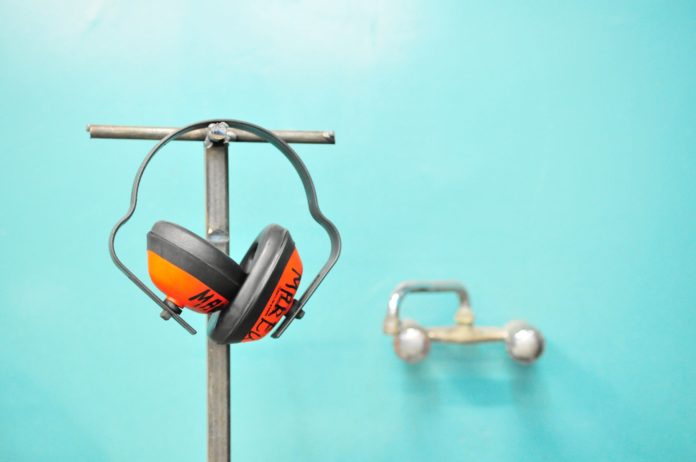Families have experienced horror stories of returning home from vacation to discover that their house was broken into or a pipe burst while away. This type of issue can be incredibly costly to resolve, which will cause a lot of stress in your life. Many methods exist for preventing security breaches while you are away from home with your family.
Here are some tips to ensure that your house is safe before you go away, so you can relax while you’re away. Making these preparations now will help prevent major headaches later on. Taking action now will pay off in the long run, even if it takes a little time and thought. Take a look at the following general safety tips when away from home.
1. Professionally Monitored Home Security System
A home security system with door and window sensors is your first line of defense against burglars. Although some systems allow you to monitor yourself, alerts on your phone may not be very helpful if you’re traveling outside the country or somewhere where data coverage is unreliable. Monitoring your home security system ensures that you are notified instantly by the alarm company when there is a breach.
2. Environmental Sensors
Several modern home security systems can be configured to monitor when someone enters your property and when damaging environmental factors are present. Moisture sensors detect changes in air moisture, which can indicate a ruptured pipe or an unreliable appliance. Smoke and carbon monoxide detectors are now common in security systems to raise the alarm in case of a fire or toxic fumes.
3. Programmable Or Smart Thermostat
There’s no point in heating or cooling an empty house to a comfortable temperature when you’re gone, but you don’t want to turn off your system completely. Set your thermostat four degrees above or below your usual setting whenever you’re away from home. To avoid frozen pipes in the winter, this temperature should never drop below 50 °F. You can set a schedule ahead of time for your programmable thermostat so that the temperature will be comfortable again when you return home.
You can check your home’s temperature remotely and make the necessary adjustments using a smart thermostat. The Nest Learning Thermostat is recommended because it learns your preferred temperature settings, uses geofencing and is compatible with Amazon Alexa and Google Home.
4. Don’t Indicate Publicly That You’ll Be Away From Home
You should not leave any messages on your voicemail, answering machine, email autoreply, or social media post indicating your absence. You’d better wait until after returning home to post your vacation photos despite the temptation. You can still post if you can’t resist, but make sure your posts are viewable only by friends and not mention your precise departure dates. If you leave a voicemail message or answer the machine, make the message vague, and make an autoreply to your emails vague.
5. Outdoor Security Lights
Burglars are more likely to select dark, hidden areas when searching for a way inside. Install outdoor security lights in areas prone to burglary, such as the back door or sides of the house, to illuminate these hiding places. Most models come on only during the night or are motion-activated so that you won’t worry about their energy consumption.
6. Smart Lock
You can remotely unlock your door and grant temporary access to a specific building area with a smart door lock. You can track exactly who enters and exits your house and terminate access once you are back home if you have a neighbor checking on the house or a pet sitter coming to take care of the dogs. You can control who has access to your spare keys at any moment. No more having to keep track of who has them. August Smart Lock is the smartest choice among its competitors because it requires zero physical keys and is equipped with the most intelligent features.
7. Spare Keys
If you are leaving town, now is the time to collect all of your spare keys from outside your house (get a smart lock instead). Your hiding places are not as clever as you think.
8. Lock Everything
It’s easy to overlook this step. Lock all the doors and windows. Ensure all blinds and curtains are closed, and if you are putting timers on lights to simulate human presence, be sure that light can reach the street.
9. Install A Video Doorbell
You can use a video doorbell to answer the door from anywhere. A notification will appear on your phone the moment someone rings the doorbell so that you can see and speak to them immediately if you are on a beach or in the jungle without cell service. You can still download the video later if you are on a beach or in the jungle without cell service.
10. Check Batteries In All Home Security Devices
You should ensure that all safety and security devices, including motion detectors, cameras, and smoke detectors, will not run out of batteries while you are away. Hardwired electronics may also have backup batteries in a power outage. A good battery will likely last longer than a cheap one, so buying a high-quality one is better.
11. Unplug Nonessential Electronics
You can reduce your fire risk and save money by unplugging all non-essential electronics, including your TV, computer, coffee maker, fans, and lamps. Power used by plugged-in electronics when they are not in use is called phantom load. Each household pays about $100 per year for it, as it consumes about 5-10% of household energy. Furthermore, unplugging devices help prevent equipment damage and fires caused by electrical surges.
12. Invest In Security Cameras
There is a difference between catching a perpetrator and not catching one by some well-placed security cameras, both inside and outside. Try the motion-activated indoor/outdoor Arlo system, which notifies you of any activity via your smartphone and will send you video clips. As well as letting you remotely access your cameras in real-time, this camera allows you to stream what you see in real-time.
13. Shut Off Water Main
Several years ago, a family returned home after a couple of weeks of vacation to find their basement flooded, destroying decades of memories and causing thousands of dollars in damages. As a result, every member of my family has been diligent about turning off the water main before going away and has avoided floods ever since.
If you still want your sprinkler system to work, consider turning off the water supply to every toilet and your dishwasher, washing machine, and icemaker.
14. Switch Water Heater To Vacation Mode
When no one is using your water, you don’t need to keep it piping hot, just as you wouldn’t need to keep a house warm if it wasn’t occupied. Many modern water heaters have a pre-programmed vacation mode to keep the water near 50°F to avoid a big mess. A water heater without this setting can be set manually using the controls.
15. Clear Storm Drains And Gutters
When it rains heavily, and water accumulates near the house, the water may saturate the ground and seep into the basement if there is nowhere else for it to go. You should especially keep your storm drains and gutters clear if you aren’t around to handle a storm.
16. Get Valuables Out Of Sight
Any time you leave your home, especially if you’re away for a few days. When large electronics are present, such as televisions, keep blinds and curtains closed. Place all handheld devices, credit cards, cash, and jewelry in inconspicuous boxes in the closet. Consider using a safe if you have a gaming console or DVD player. Gun safes are essential for firearm owners.
17. Hire Someone To Cut Grass Or Remove Snow
It looks like no one has been home for a long time if your lawn is not mowed or the snow is not shoveled. Get these tasks done before leaving so your home appears occupied and avoid fines.
18. Simulate A Human Presence
You can pre-program a smart lighting system to turn on at various times during your absence to make it look like someone is home. Another classic technique is to turn on a radio, and you can get fancy by tying the radio to an appliance timer so it synchronizes with the lights.
19. Ask A Trusted Friend Or Neighbor To Check In Periodically
Ensure that someone checks your house regularly for signs of unauthorized entry, burst pipes, or any other problem. If they park in the driveway, adjust some blinds, or move some patio furniture, it will be clear they are nearby.
20. Suspend Mail And Newspaper Delivery
It’s a sure sign that no one is home when the mailbox overflows and the papers are stacked high. You can sign up online with the USPS to have your mail held free for 30 days at your local post office. You should arrange for someone to pick up your mail if you’re away for longer than 30 days.
Are you interested in learning about different security solutions you can employ for your safety? Check out the rest of Be-Safe’s resources today!

Daisy is the engine behind Be-Safe.org — from content production to product reviews and more. What drives her is the passion to make home security information easily available.





